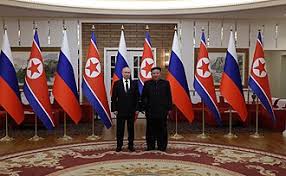
Introduction
North Korea and Russia have historically shared a complex relationship, influenced by geopolitical considerations and mutual interests. As the global landscape continues to shift due to various conflicts and economic pressures, the dynamics between these two countries have gained renewed attention. Understanding the nature of North Korea-Russia relations is crucial for analyzing regional security, international diplomacy, and global political alliances.
Historical Context
The relationship between North Korea and Russia dates back to the Cold War era when both nations were aligned against the Western bloc. Russia, then the Soviet Union, played a significant role in establishing North Korea’s communist regime. Over the years, this alliance went through various phases, particularly with the fall of the Soviet Union in 1991, which led to a decline in strategic partnerships.
Recent Developments
In recent months, the relationship between North Korea and Russia has strengthened due to various factors. With increased sanctions imposed on North Korea by the United States and its allies in response to its nuclear ambitions, Kim Jong-un has sought closer ties with Russia as a counterbalance. Notably, in September 2023, Kim Jong-un visited Russia, meeting with President Vladimir Putin to discuss military cooperation and economic support. Analysts suggest this meeting signifies a pivot towards deeper collaboration, particularly in the face of international isolation.
The Military and Economic Implications
Potential military cooperation has raised alarms in the international community. Reports indicate discussions on arms exchanges and technology transfers that could enhance North Korea’s military capabilities. Additionally, economic support from Russia could help North Korea mitigate its ongoing economic crisis deepened by sanctions and the COVID-19 pandemic.
Conclusion
The evolving relationship between North Korea and Russia is indicative of broader trends in international relations, where traditionally adversarial nations may find common ground amid external pressures. As these two countries strengthen their ties, the implications for regional security and global political dynamics could be significant. Observers caution that increased cooperation between North Korea and Russia may destabilize the already fragile peace in Northeast Asia, necessitating ongoing vigilance from the international community. As this relationship develops, it will be essential for policymakers and analysts to closely monitor its trajectory and potential repercussions.



